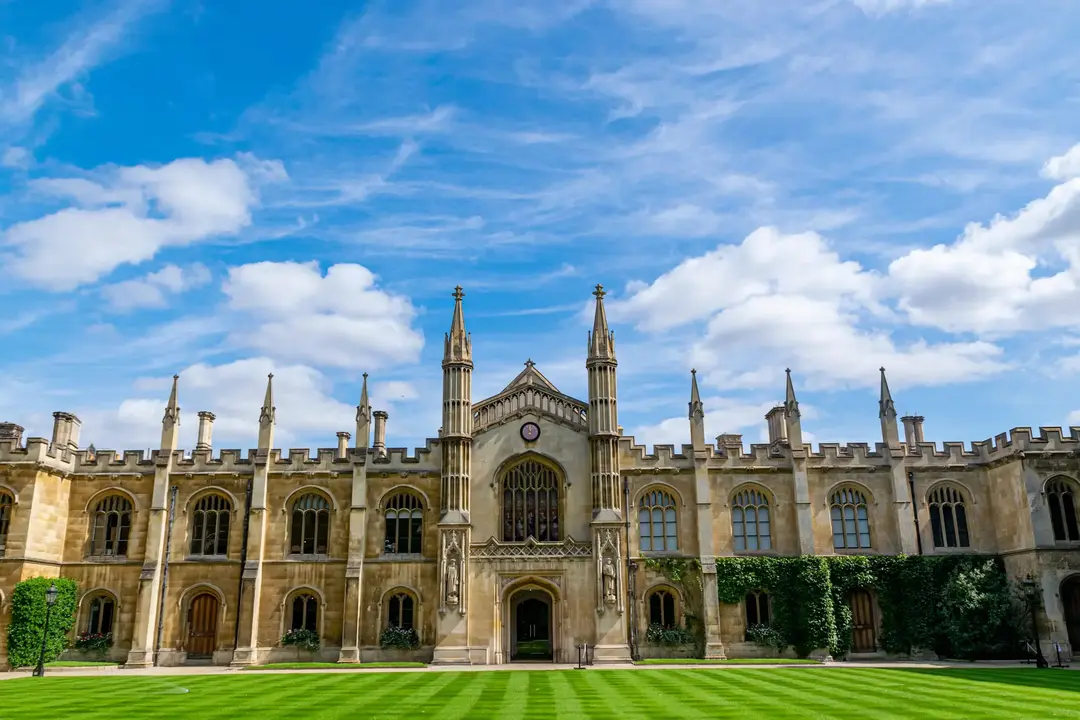Table of Contents
ToggleInternational students wish for a vibrant campus life where they get to meet and interact with new people from different cultures and backgrounds and embrace it. American universities are known for accepting international students from all over the world, promising them the campus life that they wished for. Some of the finest universities and educational institutions of the world belong to the US. The US not only focuses on imparting education but also prepares the students for a competitive tomorrow. Getting accepted at the US universities results in a sure shot assurance of a hands-down study experience. Sometimes, students tend to make hasty decisions regarding the choice of the university, or their degree due to a lack of sufficient knowledge on what suits them the best. Making a decision to study abroad is huge and therefore missing out on important details can be problematic in the long run. Keeping that in mind, we have compiled a complete guide for study in the US – tuition fees, degrees, universities.
Why Study In The US?
Every year, the number of international students in the US grows as more students select the country to extend their experience and further their education. In fact, the United States is currently the most popular destination for overseas students. Why do so many overseas students opt to attend schools and universities in the United States? This study in the USA guide has listed some reasons why the US is an appropriate study abroad destination:
Academic Excellence: The United States boasts one of the best university systems in the world, with exceptional programmes in almost every field. Excellent undergraduate programmes are available in both traditional disciplines and professional areas. Graduate students have the opportunity to work directly with some of the best brains in their field of study, as well as participate in special research and educational initiatives. Degrees from the United States are renowned for their quality across the world.
Cutting-Edge Technology: Universities in the US take pleasure in being at the cutting edge of technology, research, and methodologies, as well as providing their students with the finest possible equipment and resources. Even if your field does not directly include science or engineering, you will have the opportunity to learn how to conduct research and collect and process information utilising cutting-edge technology. You will discover new methods to communicate with researchers, instructors, and professionals in your area from all around the world.
Support Services: An orientation programme upon your arrival is just the beginning of the university international student office’s many programmes and benefits – they can help answer questions you may have about your visa status, financial situation, housing, employment opportunities, health concerns, and more throughout your time in the US.
Campus-Life Experience: Studying in the U.S. broadens not just your educational options, but also your cultural experience. The majority of colleges, whether they are in a small town or a huge city, provide a wide range of student clubs and organisations to cater to the many interests and lifestyles of students. Immerse yourself in the culture of the United States, and get involved in your uni’s campus life which is what the US is most famous for.
Tuition Fees | Study In The US – Tuition Fees, Degrees, Universities
International exposure can be a massive career boost for students. It adds up to your resume and comes in handy during recruitments. Study in the US tuition fees largely depends on the course type, the course structure, the reputation of the university, and the type of university. The table below depicts the approximate tuition fees for studying in the US at various levels.
| Program | Tuition fees (USD) |
| English language studies | $700 – $1200 per month |
| Undergraduatebachelor degree | $20,000 to $40,000 per year |
| Graduate programs | $20,000 to $45,000 per year |
| Doctoral degree | $28,000 to $55,000 per year |
| Community colleges | $6,000 to $20,000 per year |

It is necessary to keep in mind that tuition fees aren’t the only expenses that are to be covered for students studying in the US. There are other expenses such as accommodation costs, living expenses, health insurance, and other expenses.
Accommodation Costs | Study Guide To the USA For International Students
There are costs of taking student accommodations either on the campus or off the campus. They are structured carefully after considering various other expenses like maintenance, the type of room, the amenities provided, the inventory, and many other such aspects. The estimated cost of living in the US ranges between $5,000 to $7,500 per year. Off-campus accommodations located within the vicinity of the universities are convenient options for students.
Living Expenses | Studying Abroad In The US
Students spend a lot of their expenses on daily requirements which are basic necessities for them. While the amounts differ from state to state in the US-based on the demand and the location, the average amounts of a few of the expenses are listed below –
| Groceries | $150 |
| Electricity | $20 |
| Home Internet | $15 |
| Restaurant Meals | $75 |
| Cell Phone | $50 |
| Entertainment | $100 |
| Shopping | $100 |
| Weekend Activities | $100 |
Health Insurance

Health insurance is provided only by a few universities in the US. Usually, it is recommended for students to get their health insurance done beforehand either via their university or with the help of their support services. The average cost of a student health insurance plan ranges between USD 1,500 – USD 2,500 a year.
If you’re looking for affordable student accommodation, and/or wish to secure an education loan, make sure you check out the banners in this blog!
Degrees Offered | Study In The US – Tuition Fees, Degrees, Universities
College degrees in the US could be offered in two ways –
- 2 year Institutions – Community Colleges
- 3 – 6 year Institutions – Public and Private Universities
Over two million courses in multiple fields are offered in the US educational institutions with each university/institution having its own set of courses from where students can pick and tailor courses of their choice. The table below depicts the type of degree offered under each type of institution.
| Type Of Institution | Degrees Offered |
| 3 – 4 Year Universities | Bachelor’s Degree |
| 1 – 2 Year Universities | Master’s Degree |
| 3 – 6 Year Universities | Doctoral Degree |
| 4 – 5 Year Universities | Post-Doctoral Degrees |
| 1 year Community College | Certificate Program |
| 2 Year Community College | Associate Degrees |
Universities In The US | Study In The US – Tuition Fees, Degrees, Universities

The US hosts some of the top universities that offer a wide range of courses. International students find it easy to select a course of their choice in the University of their choice. Students also keep in mind the scholarship to study in the USA available for them while selecting a particular university and accordingly apply. Here’s a list of the top ten universities in the US that most students look forward to joining.
- Harvard University
- Stanford University
- Massachusetts Institute of Technology
- California Institute of Technology
- University of Chicago
- Princeton University
- Yale University
- University of Pennsylvania
- Columbia University
- John Hopkins University
Student Visa To Study In The US
Anyone planning to study in the United States may be granted one of the three international student visa types: F1 Visa, J1 Visa, or M1 Visa. “What visa do you need to work as an international student in the United States?” you may wonder. The F1 and J1 visas permit but do not guarantee work. The M1 Visa, on the other hand, does not permit work.
F1 Visa: The “F” visa is for academic studies. An F1 visa is issued to students who are attending an academic programme or English Language programme. F1 visas are by far the most common form of international student visa in the U.S.
J1 Visa: A J1 visa is granted to students who require practical training that is not accessible in their native country in order to finish their academic degrees. J-1 student status permits for the same employment as the F1 visa, with identical restrictions, as long as the exchange visitor programme sponsor grants authorization.
M1 Visa: An M1 visa is granted to a student attending a non-academic or vocational school. M-1 visa holders enrolled in technical or vocational programmes are not authorised to work throughout their education. M-1 student visa applicants must provide proof that adequate funds are immediately available to cover all tuition and living expenses for the duration of their anticipated stay.
Financial Aid
As you begin to consider financing alternatives for your educational and living expenses in the United States, keep in mind that unless you have been awarded a teaching or research assistantship, you will be unable to work in the United States. Working while on a student visa is prohibited by immigration laws, and you cannot depend on future income when submitting proof of your financial means. The income on which you base your application must be guaranteed, and it must be equivalent to or more than the costs of your first year of study.
However, if you’re looking for ways to fund your education expenses, you can always apply for scholarships. UniScholars is a platform that offers merit-based and need-based scholarships for studying in the US. You can apply from over 1000+ scholarships available for you, most of which will contribute towards your tuition fees, accommodation, as well as, living expenses. Moreover, you can apply for free and even avail of free property consultation services provided.
We hope you enjoyed reading this blog on A Guide To Study In The US – Tuition Fees, Degrees, Universities. If you wish to read more about how to study in the USA for international students, here are some blogs that we think you will enjoy reading –

















1 thought on “Top PGDM Courses In Canada: Universities, Specialisations & Eligibility”
I have done Bachelor’s in Culinary Arts from India and completed my graduation in the year 2022 .I am 22 years old. After graduation, I have done 1 year paid internship from USA .Now, I would like to take occupational experience and learn culinary skills and also do masters in Culinary arts.How can I find the college n best course / country where I can persue studying further